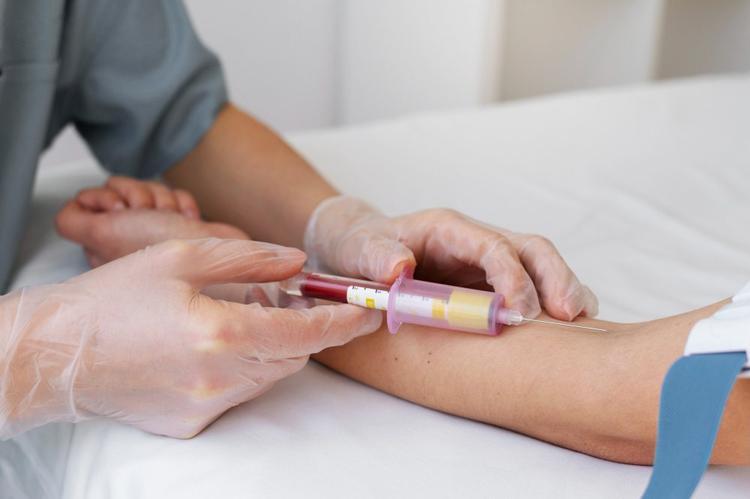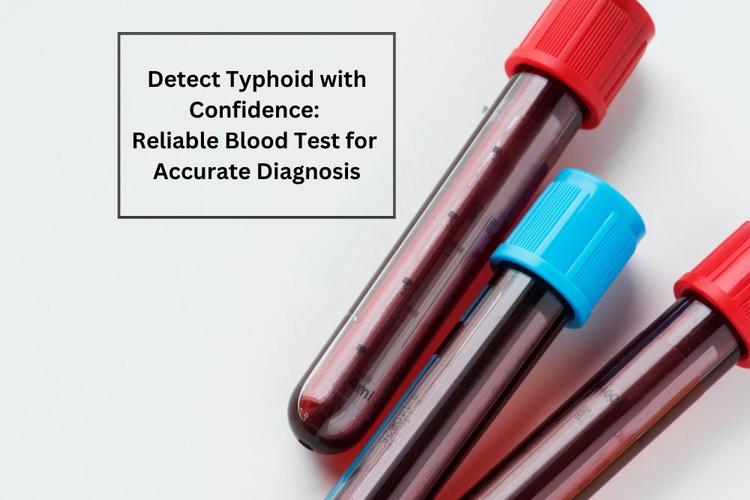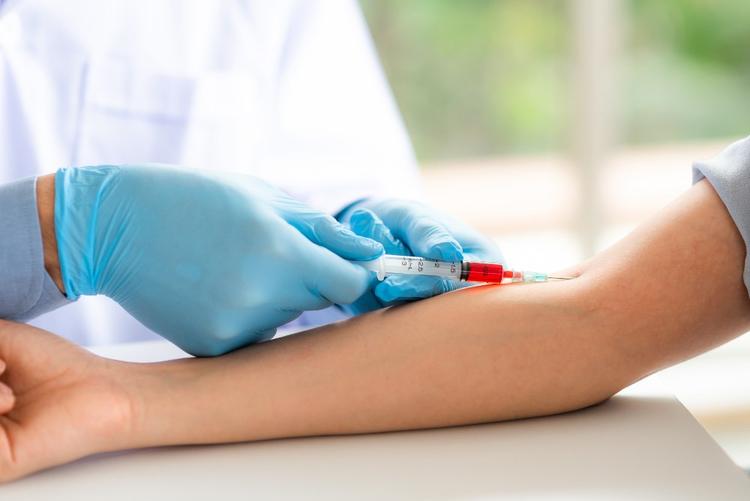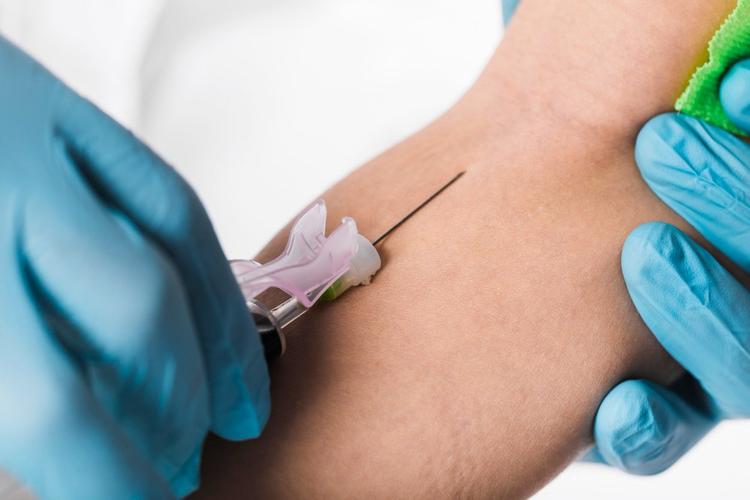PCV- Understand the Test & Normal range of PCV

Medically Reviewed By
Dr. Ragiinii Sharma
Written By Prekshi Garg
on Jul 26, 2022
Last Edit Made By Prekshi Garg
on Mar 18, 2024

PCV or Packed Cell Volume test analyzes the levels and proportions of red blood cells in your bloodstream. Since our red blood cells are responsible for carrying oxygen to each part of the body (including the vital organs), keeping a check on its dispersed availability in the body is crucial.
PCV test is alternatively termed the hematocrit test in medical terminologies. It is a simple and routine blood test that’s completely safe and is assessed as part of the Complete Blood Count (CBC) test of a patient.
This article will explore more about what PCV is in blood tests and how you can interpret the results.
What is a PCV test?
The PCV or hematocrit test, as mentioned, is a routine blood test that measures and analyzes the proportion and availability of red blood cells in the body.
Drastically differential levels of the red blood cells (too high or too low) indicate underlying health complications that need further testing for a comprehensive diagnosis. The test is a key marker for diagnosing two alarming chronic conditions, including anemia or polycythemia.
Depending on the reports of the PCV test, your doctor might assess the need for a current or future blood transfusion to ensure the optimal health of the patient.
The PCV is directly proportional to the availability of the red blood cells. If the proportions of red blood cells increase, so will the levels of PCV and vice versa.
Why is a PCV test necessary?
Simply knowing what is PCV/HCT in a blood test isn’t enough. For a more comprehensive understanding, one needs to know the significance of the test.
When and why should you get a PCV test? The primary objective of a PCV or hematocrit test is to analyze a suspected medical condition and monitor the aligned treatment for the same.
Complications related to red blood cell production, autoimmune disorders, bone marrow disorders, anemia, etc., often require a PCV report for further treatment regimen.
How do you prepare for a PCV test?
The PCV test is a routine blood test, so there isn’t much for which you have to prepare. Also, there aren’t any specific dietary restrictions associated with the test. You don’t need to fast before giving the blood sample for testing.
During the test, a phlebotomist will draw the sample from the vein in your arm. The site where the injection is inserted is thoroughly prepped with alcohol to reduce the possibilities or risks of infections in the future.
Once the sample is collected, it is sent to the laboratory for further testing for the final reports.
What are the Normal PCV Test Reports?
Once you know the meaning of PCV in blood tests, the next factor worth noting is the normal range of this test.
The normal range of the PCV test is between 35.5 to 48.6 percent. The range for men is between 38.3 to 48.6 percent, and for women, it is 35.5 to 44.9 percent.
Moreover, the accuracy of the test results can be hindered by certain external and environmental factors like:
- Pregnancy
- Living in higher altitudes
- History of blood transfusion
- Dehydration
- Blood loss due to trauma or injury, etc.
Keeping that in mind, you can then assess what is PCV HCT in blood tests and what the high and low levels mean in the test reports.
| Test Reports | Range | Possible Risks |
| High PCV Levels | A level over 48.6 percent. |
-Dehydration-Polycythemia vera-Lung disease -Heart disease |
| Low PCV Levels | A level below 35.5 percent. |
-Anemia-Leukemia-Lymphoma -Vitamin deficiency -Mineral deficiency -Blood loss -Inflammatory diseases -Haemolysis -Liver cirrhosis -Cancer treatment side-effects -Myeloma -Kidney disease |
Always discuss the reports with a doctor to understand why the levels are abnormal in your case. In case there are any underlying complications, your doctor might prescribe further tests to reach a conclusive diagnosis.
When Should I take the PCV test?
PCV is a part of the CBC blood test that checks many aspects of your health. Here are some situations in which you can get the test-
- As a part of routine health checkups,
- If you notice symptoms like fatigue, weakness, pale skin, or frequent infections.
- Pregnant women should take PCV tests to monitor anemia conditions.
- If you have certain medical conditions.
If you're concerned about your PCV levels, talk to your doctor. They can help you determine if you need a CBC and can interpret the results for you.
What causes Low PCV?
Several possible reasons for low PCV levels may cause a lower-than-normal percentage of red blood cells in your blood. Here are some reasons-
- Nutritional deficiencies- The deficiency of iron, vitamin B12, folate, and other nutrients can cause anemia.
- Bone marrow disorders- Conditions like aplastic anemia, leukemia, or myelodysplastic syndromes can damage bone marrow and disrupt RBC production.
- Chronic diseases- Kidney disease, liver disease, and autoimmune conditions can affect RBC production.
- Hormonal imbalances- Hypothyroidism and hormonal imbalances can be the cause of low PCV.
- Pregnancy- During pregnancy, plasma volume naturally increases, leading to a slight dilution of red blood cells and lower PCV.
- Hemolytic anemia- This occurs when red blood cells are destroyed prematurely due to various factors like genetic disorders, autoimmune reactions, or certain medications.
- Blood loss- Heavy menstrual bleeding, chronic bleeding from digestive ulcers, and recent blood donation can lead to a drop in PCV.
What causes high PCV in the blood?
A high PCV indicates a high percentage of RBC in your blood and can have several potential causes.
- Polycythemia vera- This bone marrow disorder causes overproduction of RBCs, high PCV, and a thickening of the blood.
- Smoking- Smoking can thicken the blood by raising RBC production and decreasing plasma volume, potentially contributing to higher PCV.
- Genetic disorders- In rare cases, certain genetic mutations can cause increased RBC production and elevated PCV.
- High altitude living- The people who live at high altitudes have more red blood cells to adapt to the lower oxygen levels, resulting in higher PCV.
- Certain medications- Consumption of some medicines like anabolic steroids and erythropoietin (EPO) can stimulate red blood cell production and raise PCV.
- Severe burns- Burns can cause fluid loss from the blood vessels, concentrating red blood cells and raising PCV.
Other facts that influence PCV levels
- Age- PCV levels are slightly lower in women and older adults.
- Altitude- People who live at high altitudes have high PCV as the body compensates for lower oxygen levels.
- Medications- People who take certain medications may affect red blood cell production.
FAQs
-
What happens if PCV is low?
Low PCV levels can be indicative of several underlying complications in the body. However, your doctor will assess your symptoms and prescribe further testing to analyze what’s triggering the low levels in your case.
-
What is the normal range of PCV?
The normal range of PCV is between 35.5 to 48.6 percent in a healthy adult.
-
Why is the PCV test done?
The PCV test is done to find underlying complications associated with the availability and proportions of red blood cells in the body.
-
How do you reduce PCV in blood?
Drink more water to reduce PCV in blood and dilute the blood concentration. Blood donation can also decrease PCV in blood.
-
What happens if PCV is high?
High PCV indicates high red blood cell concentration due to dehydration, lung or heart conditions, or bone marrow disorders. This can also increase blood viscosity, raising the risk of blood clots, stroke, or heart problems.
-
Which food increases PCV in the blood?
Foods rich in iron, vitamin B12, and folic acid can increase the PCV in the blood. Examples include red meat, poultry, fish, leafy greens, legumes, and fortified cereals.
-
Can high PCV cause high blood pressure?
High red blood cell concentration increases blood viscosity, making it harder for the heart to pump. This can lead to high blood pressure and increased cardiovascular risk.
-
Can PCV be cured?
PCV is a blood disorder caused by high red blood cell production and cannot be cured. However, it can be managed effectively with treatment and lifestyle changes.
-
Can high PCV cause chest pain?
Yes, high PCV can cause chest pain. Increased blood viscosity can cause high red blood cell concentration and strain the cardiovascular system. This can cause conditions like angina or heart attack.
Conclusion
We hope by now you have a good idea of what PCV means in blood tests and its significance. The test is done as a part of the complete blood count to assess and monitor the health of your red blood cells in the body. Abnormal PCV levels can indicate several underlying conditions that require further testing for a conclusive diagnosis. If your reports are not normal, consult a doctor to find out why.
Leave a comment
3 Comments
Sandra David
Oct 17, 2023 at 6:35 PM.
What are the pcv percentage for diabetes
Myhealth Team
Oct 18, 2023 at 9:18 AM.
PCV percentage is not used to diagnose diabetes. Diabetes is diagnosed through blood glucose tests like fasting blood sugar and HbA1c levels. Consult a healthcare professional for diabetes diagnosis.
OKOH SHEDRACH
Jun 23, 2023 at 4:14 PM.
I have a PCV of 36 what does it mean? Is it normal?..and what PCV value can I have before I can donate blood
Myhealth Team
Jun 26, 2023 at 8:01 AM.
Hi, Thank you for your enquiry. A PCV value of 36 is within a normal range for many people. The specific PCV value required for blood donation may vary depending on the guidelines set by the blood donation center you visit. It is advisable to contact your local blood donation center for accurate information regarding their eligibility criteria. Thankyou
Kumaresh Vijay
May 13, 2023 at 5:35 PM.
Pcv blood test 51.4 there any problem Dr
Myhealth Team
May 16, 2023 at 7:30 AM.
Hi Kumaresh Vijay, Thankyou for the enquiry. A PCV blood test result of 51.4% indicates a higher-than-normal concentration of red blood cells. This may suggest a condition called polycythemia. It's important to consult with a healthcare provider for a proper evaluation and diagnosis, as there can be various underlying causes for polycythemia.



